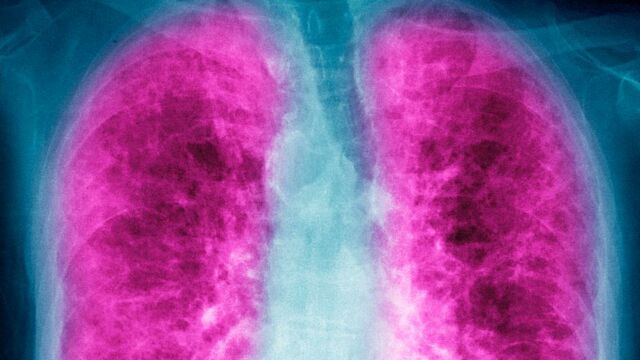Over the last 10 years, lung cancer has increased considerably due to smoking. According to the National Cancer Institute, it kills an average of 10,000 women each year. This staggering figure makes this cancer the second leading cause of death in women.
Discover our latest podcast
Dr Maurice Pérol, an oncologist specialising in thoracic cancers at the Léon Bérard Centre in France, talked about the most common symptoms to watch out for. We've outlined the symptoms below.
It's important to note that with lung cancer, when the tumour is small at the beginning of the disease, it does not cause any specific symptoms. However, as the tumour grows, certain symptoms can easily attract attention. Therefore, anyone experiencing these symptoms already have a somewhat advanced form of the cancer and should immediately consult.
Coughing at night
Fortunately, coughing is not always linked to lung cancer. However, it is a symptom to be watched closely, especially when it persists at night and in the morning.
Coughing up blood
Dr Maurice Pérol was very clear about this:
Sputum or bloody sputum is never harmless.
When this symptom occurs in smokers, a clinical examination and an X-ray are absolutely necessary to assess the situation.
Chest pain
The oncologist warned:
When the tumour is large and reaches the pleura, it can lead to chest pain that intensifies when coughing or breathing deeply.
Experiencing difficulty breathing
Wheezing, difficulty breathing, and unusual shortness of breath can be warning signs of lung problems. Smokers or ex-smokers should be on the lookout for these suspicious symptoms, and not hesitate to seek advice.
Difficulty swallowing
This can happen if the tumour is crushing the oesophagus. A symptom to watch out for!
Paralysis on one side of the body
Unfortunately, metastases can develop in other organs if the tumour is discovered too late. Depending on which organs have metastasised, the symptoms differ. These include nausea, headaches, mental confusion, seizures, and sometimes even total or partial paralysis.
Experiencing back pain
Lung cancer tends to spread to the bones, especially those of the spine, ribs, arms, and legs. As a result, the tumour cells ‘nibble’ at the bone, causing severe pain that should certainly not be taken lightly!
In our video at the top of the article, discover to what extent the COVID-19 pandemic has had a terrible impact on cancer screening.















